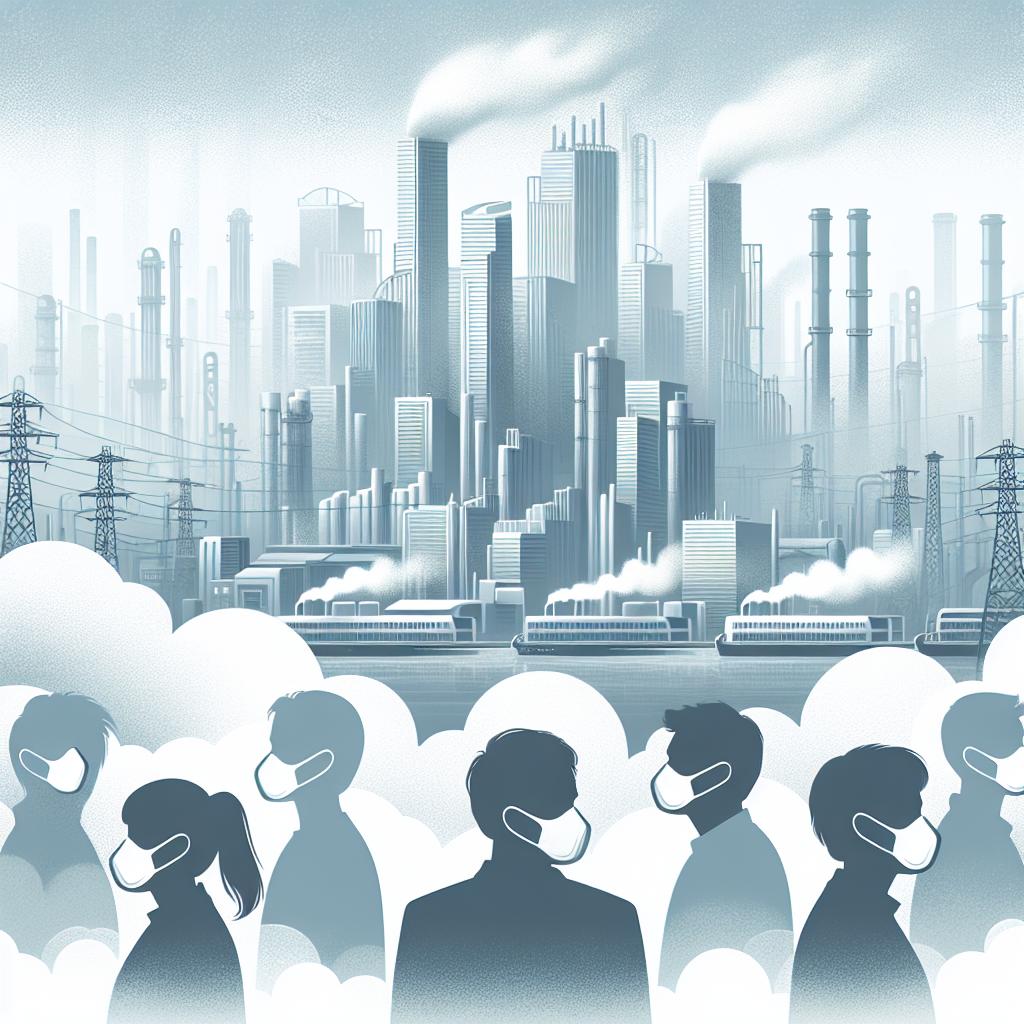
Are Regulators Ignoring the True Dangers of Air Pollution? New Study Reveals Startling Insights

Are Regulators Ignoring the True Dangers of Air Pollution? New Study Reveals Startling Insights
How Traditional Models Underestimate Air Pollution Risks
A recent study from Johns Hopkins University reveals that regulators might be seriously underestimating the health risks associated with air pollution. This new research introduces a holistic approach that considers not just individual chemical exposures but the cumulative effects of multiple pollutants on our health. Traditional risk models focus on isolated chemicals, calculating their safety based on life-long exposure levels without accounting for the combined impact of living in a polluted environment, where we are bombarded by myriad toxins simultaneously. Researchers found significant health risks affecting vital organs—such as the brain, heart, and lungs—in communities near Philadelphia, where pollution from industrial operations is prevalent. The study co-author, Pete DeCarlo, emphasized the necessity of a comprehensive approach to measure health risks accurately, pointing out that we breathe in a mix of pollutants all at once, creating complex interactions that traditional models fail to capture.
Cross-Border Solutions for Air Quality in South Asia
Air pollution poses a critical public health crisis in South Asia, exacerbated by rapid industrialization and population growth. A recent review highlights the pressing need for collaboration between Pakistan and India to tackle air quality issues. While developed countries have stringent air quality regulations, South Asia lacks such comprehensive measures, leaving its population vulnerable to severe health complications, including asthma and lung cancer. The call for 'Clean Air Diplomacy' aims to foster cooperative efforts to monitor air quality and reduce emissions across borders, marking a potential new path toward sustainable health improvements for millions. By looking at successful international examples, countries in South Asia can learn how collaborative air quality management can lead to cleaner air and enhanced public health outcomes.
The Dire Impact of Air Pollution and Heat on Mortality in India
A ground-breaking study by researchers at the Karolinska Institutet has shed light on the severe combined risks of air pollution and extreme heat in Indian cities. By analyzing daily mortality data over several years, the research has shown that the combination of elevated temperatures and high levels of particulate matter (PM2.5) significantly increases the risk of death, suggesting that climate change and air pollution are intertwined threats. A notable finding reveals that a mere rise in PM2.5 on extremely hot days correlates to a staggering increase in daily deaths, underscoring the urgent need for comprehensive strategies that address both air quality and climate change. This holistic understanding is essential for developing effective public health responses in densely populated urban settings where both factors frequently converge.
World Bank's Push for Clean Air: Policies and Investments Needed
The World Bank has recently emphasized the urgent need for integrated policies to combat air pollution, highlighting its devastating impact on health and economies. Their latest report outlines the significant sources of air pollution globally and warns that without swift action, the problem will worsen. This report calls for a coordinated government response that not only tackles emissions but also promotes investment in clean air strategies. By adopting comprehensive decarbonization policies alongside air quality management, countries can not only improve public health but also reap substantial economic benefits. The message is clear: a concerted effort is needed to protect our planet and its inhabitants from the escalating crisis of air pollution.
Glossary
- Holistic approach [Concept]: An approach that considers the entirety of a situation, including multiple factors and their interconnections, rather than viewing elements in isolation.
- Cumulative effects [Concept]: The combined health impacts arising from exposure to multiple pollutants over time, as opposed to exposure to a single chemical.
- PM2.5 [Concept]: Fine particulate matter that is 2.5 micrometers or smaller in diameter, which can penetrate deep into the lungs and is associated with various health risks.
- Clean Air Diplomacy [Concept]: Collaborative efforts between countries aimed at improving air quality and reducing emissions through mutual agreements and shared strategies.
- Decarbonization policies [Concept]: Strategies aimed at reducing carbon dioxide emissions as part of broader efforts to combat climate change and improve air quality.
Source Documents
- Regulators are underestimating health impacts from air pollution: Studyhttps://www.ehn.org/health-risks-of-air-pollution
- Cross-Border Collaboration for Emerging Air Pollution in ...https://irispublishers.com/iojs/pdf/IOJS.MS.ID.000517.pdf
- Accelerating Access to Clean Air for a Livable Planethttps://documents1.worldbank.org/curated/en/099032625132535486/pdf/P502230-d16d0858-2e18-41df-a7a6-f1188121ac83.pdf
- Air pollution and extreme heat substantially raise the risk of death in Indiahttps://www.techexplorist.com/air-pollution-extreme-heat-substantially-raise-risk-death-india/98802/
- Cities - CDPhttps://guidance.cdp.net/language/ko?cid=39&ctype=theme&idtype=ThemeID&incchild=1µsite=0&otype=Questionnaire&page=1&redirect=%2Fpt%2Fguidance&tags=TAG-637%2CTAG-13013
- mexico city subsidence: Topics by Science.govhttps://www.science.gov/topicpages/m/mexico+city+subsidence